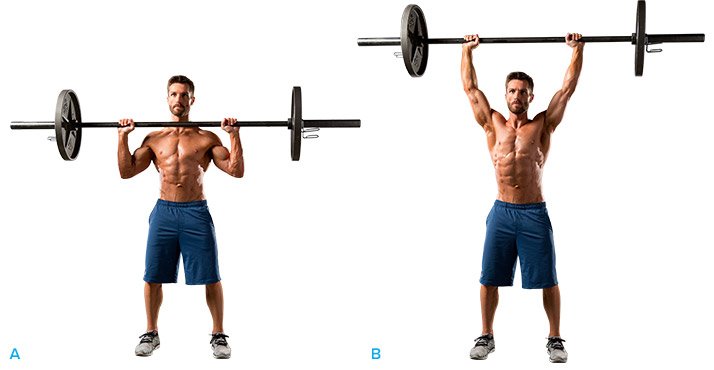Pain with overhead press?
Should You Be Overhead Pressing?
Shoulder injuries are one of the more common injuries I see in my practice. The shoulder is a very complex and inherently unstable joint. If you are an overhead athlete or an avid weight trainer your risk increases exponentially for a shoulder injury.
I personally have had my share of shoulder problems. I spent years doing heavy barbell bench pressing, behind the neck pressing and weighted dips not realizing the damage I was causing to my shoulders.
The overhead press is one of the best exercises for developing your deltoids. The problem is there is a high risk of injury without appropriate mobility or stability.
Execute the Overhead Press Correctly
- You must have adequate upward rotation of your shoulder blades. If you lack shoulder blade upward rotation it drives the ball of the shoulder upward in the socket leading to rotator cuff compression.
- You must have adequate thoracic (mid-back) extension. The evolution of a sedentary routine and time spent sitting at a computer or hunched over an electronic device are significantly impacting our postures.
- You must have adequate rotator cuff strength. If you lack cuff strength it will impact your ability to hold the ball in the socket.
- You must have adequate tissue quality. If you are stiff, especially in your lats, it will impact your ability to effectively get your arms overhead.
The Bottom Line
If you want to overhead press, you must earn the right to do so. If you lack any of the above, the movement will eventually lead to injury. It really comes down to risk/reward for some of us. I personally choose to landmine press with my history of shoulder issues. Another good alternative would be a neutral grip (palms facing inward) dumbbell press instead of a barbell.

